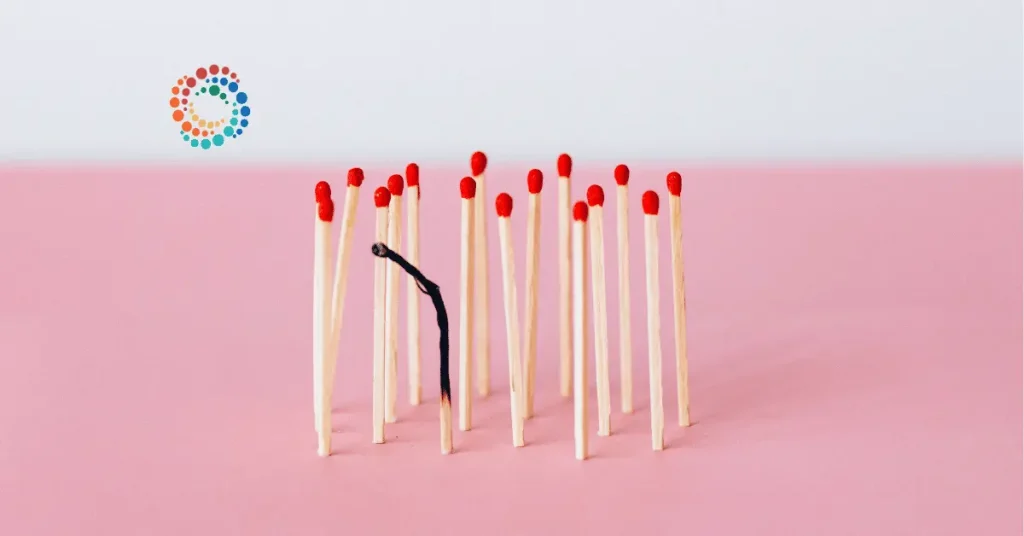Lifestyle medicine helped save this physician from burnout
When emergency medicine physician Dr. Raquel Harrison found herself on the brink of burnout, discovering lifestyle medicine helped her reclaim her health, her purpose, and her power to truly heal.
Raquel F. Harrison, MD, DipABLM
June 30, 2022

Dr. Raquel F. Harrison is an emergency medicine physician for Yale New Haven Health.
If you had asked me three years ago if I was burned out as an emergency department physician, I would have said no. But I realize now that burnout was exactly where I was headed.
I was 32, seeing about 30 patients a shift for Yale New Haven Health. I liked my job — the adrenaline rush from saving a life is medicine’s ultimate reward. But 80 to 85 percent of the diagnoses I made were straightforward, not immediate life-threatening events or complicated medical dilemmas to solve.
Abdominal discomfort. Chest pain. Asymptomatic high blood pressure. I’d identify the likely cause, often prescribe a medication and, if hospitalization wasn’t warranted, send them home.
Still satisfying, but it was hard not to wonder how much of an impact I was really making on the overall health of those patients. Familiar faces returned to the ER with the same ailments that I had treated months, weeks or even days before.
Meanwhile, at home, my husband and I were raising three children under the age of 3. I found a mass in my breast that eventually turned out to be benign. I was working a lot, navigating a busy home life and not investing a great deal of time in my own wellbeing.
Combined, my sense of failure to meaningfully impact many of my patients’ lives and stress of from parenthood and personal health concerns was a prescription for burnout, a condition that afflicts 42 percent of physicians, according to “Death by a 1,000 Cuts,” a physician burnout and suicide report published by Medscape. The COVID-19 pandemic has only increased stress on physicians and other health professionals.
My breakthrough came after a visit with family in California. I saw relatives struggling with health problems and realized that was my current trajectory. Something had to change, but what? Shortly after returning home, I was in an organic food store waiting for a smoothie when I flipped through a magazine and stopped at an article about lifestyle medicine.
I should check that out, I thought.
Lifestyle medicine is defined as the use of evidence-based lifestyle therapeutic intervention — including a whole-food, plant-predominant eating pattern, regular physical activity, restorative sleep, stress management, avoidance of risky substances, and positive social connection — as a primary modality, delivered by clinicians trained and certified in this specialty, to prevent, treat, and often reverse chronic disease, according to the American College of Lifestyle Medicine (ACLM).
I was all in. I joined ACLM, which educates, equips, and supports certification of physicians and other clinicians in lifestyle medicine, and I earned my certification in November 2020.
First, I applied what I learned to myself, spending more time in spin class or exercising outdoors, and switching to a predominantly plant-based diet. Breakfast became berries, nut-and-seed granola and non-dairy yogurt. Lunch a kale or spinach salad. Legumes at dinner. It wasn’t always easy. I’m Cuban and grew up on pork and white rice. But the results were undeniable.
I lost 20 pounds. I slept better, felt stronger and had more energy. Interestingly, there was a ripple effect on those around me. My mom joined me in new habits and lost 20 pounds, too. My carnivore husband cut back on his meat intake. Even my kids started asking questions about food and nutrition.
But my commitment to lifestyle medicine also transformed me as a doctor. I began to look for opportunities to engage patients, who had straightforward diagnoses, about their lifestyles. I may say “Well, I can’t find anything wrong with you today but here are few things you could change in your lifestyle that might help you avoid feeling like this.” Almost always, they embraced the information with open arms.
It may sound more time consuming; whether you practice in a primary care setting or an emergency room, another patient is always waiting. And I do spend a few more minutes in the exam room with patients. But I know that ultimately the diagnosis won’t change the outcome unless I really talk to patients about taking control of their health. To simply prescribe a medication and move on, I believe, is to underestimate the complexity of the human body.
To some, emergency medicine is an unlikely place to incorporate lifestyle medicine. A family medicine physician can see and counsel patients regularly, monitor progress and celebrate achievements. Emergency department doctors usually don’t see our patients again. In fact, it’s probably a good a sign if we do not.
But I find the ER an excellent place to start important conversations about lifestyle health. Patients often feel desperate in that moment, and I am able to pivot and channel that desperation into something productive. It sparks conversation they can continue with their primary care physicians after they are sent home. On a recent weekend shift, I estimate I discussed lifestyle health with half of my patients.
“It reminds that I didn’t become a doctor simply to prescribe medicine or procedures but to help and heal people.”
As for me, I know that lifestyle medicine makes me a better physician. I feel good when I engage a patient in a conversation about their lifestyle — nutrition, sleep, exercise, stress, risky substance use, positive social connection — and what changes, both big and small, in daily habits could help transform their health. It invigorates me, and I am excited to meet my next patient.
It reminds that I didn’t become a doctor simply to prescribe medicine or procedures but to help and heal people. By incorporating lifestyle medicine into my practice, I feel more empowered to truly help and heal patients — and myself.